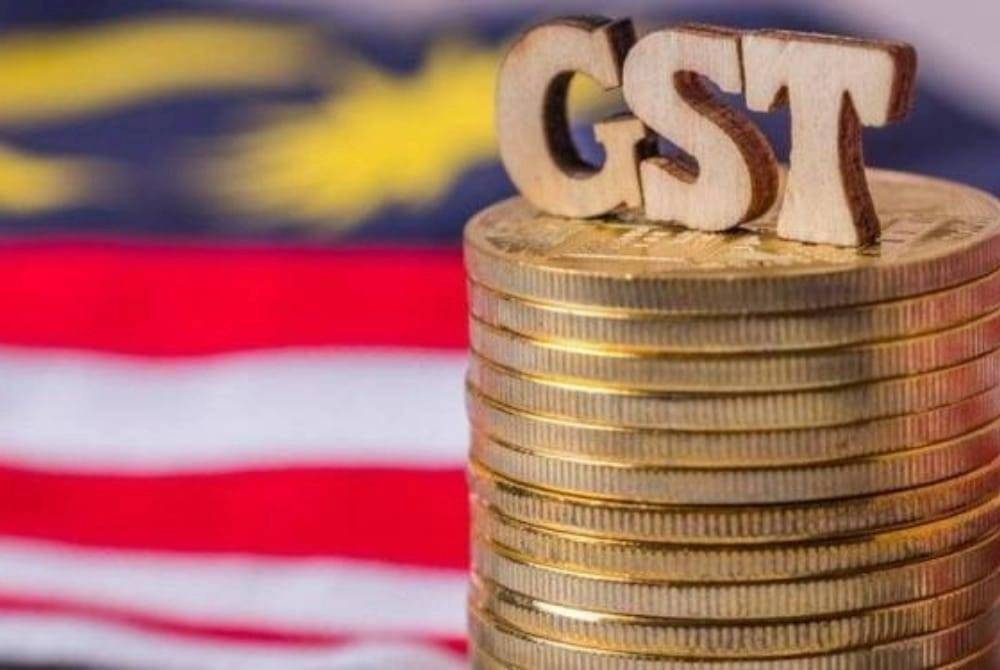Should Malaysia bring back the GST?
ZAIDI ISMAIL
The Goods and Services Tax or more popularly known as the GST is known to be a comprehensive and efficient tax regime.
With the GST, the government was able to cast a net on every Malaysians and companies which tried to evade from paying tax to ensure a healthy financial position for Putrajaya.
The GST however was scrapped in 2018 by Pakatan Harapan which promised to bury the GST if the rakyat voted for them.
The GST kicked off in 2015 under then prime minister Datuk Seri Najib Razak.
The GST was sadly a victim of politicians who made it into a carrot promising to ditch it in return for votes.
However, after a hiatus of four years, the current government under Datuk Seri Ismail Sabri Yaakob now realises the efficiency of the GST and plans to bring it back.
This realisation came after the government struggled during the pandemic and now the high cost of living.
Is the country and the people ready for GST 2.0?
Economists support the GST
Economists opine that Malaysia should definitely reintroduce the GST. Datuk Dr John Antony Xavier said the GST is an efficient tax regime that is transparent as consumers can see how much they paid GST on their receipts.
"It is an efficient revenue collection and is practised in more than 130 countries," the AIMST University vice chancellor told Sinar Daily.
"The government has shown fortitude in considering the reintroduction of the GST.
It only demonstrates the government’s foresight that the consumption tax might have a salubrious effect after all on an economy that is only chugging charily forward, dented even further by slowing global demand.
Enriching government coffers
For sure, the GST will enrich the government’s treasury.
At the height of the previous implementation in 2017, the GST brought into government coffers RM 44 billion compared to RM 28 billion by the sales and service tax or SST.
The extra revenue will help fuel public expenditure as a countervailing measure against the anticipated contraction of consumer demand.
The GST is regressive
The GST is admittedly regressive as it hits the poor more than the rich.
"But a well-targeted mechanism of exemptions and zero-rating of goods and services largely consumed by the poor should overcome this apparent inequity," said Xavier.
One-off inflation in the early stages of GST
Doubtless, the GST will cause a one-off jump in the inflation rate.
However, research suggests that over the long-term, this spike tapers off to deliver an inflation rate lower than that if the GST is not implemented.
Nobody exempted from GST
What is much admired about the GST is that it is an efficient system of taxation as it ropes in a larger segment of the consuming population into paying a tax.
Only 6 per cent of Malaysians pay tax
The GST is efficient as it compels tax evaders to pay up their dues.
Amid the already generous government tax exemptions, only about 2.2 million, or 6 per cent of the population, pay any tax now. So efficient was the GST that it brought RM42 billion into government coffers in 2017.
Contrast this with the expected SST collection of RM 22 billion this year.
Risks loom though at GST’s reintroduction
Reimposing the GST however can bring a set of risks.
First, the previous introduction of the GST so incensed the public that it was a factor in booting out the previous Barisan Nasional government.
The present government might meet the same fate in the next general election if the system is not well crafted as not to hurt the poor and the middle-income populace.
Secondly, the tax collection machinery would once again have to be overhauled because previously, there were many seepages which allowed tax evaders to slip through the cracks.
Third, the GST risks stoking another round of inflation and cost of living increase. Without fiscal stimulus, the economy will invariably soften as the GST contracts private demand.
The issues can be managed
The previous outcry over the GST was a result of public anger that more taxes were being collected amid poor governance.
The public therefore would now be more charitable in its response to its reintroduction, more so if the GST is pitched at a rate that allows the government to rake in at least as much revenue as the SST will bring. This would suggest a rate that is about half that of the previous rate of 6 per cent.
"The way I see it, reverting to GST is certainly a form of tax reform whereby the sole purpose is to ensure that the taxation system would be more effective, efficient and transparent," said Dr Afzanizam Abdul Rashid.
However, like any reform, it has to be done tactfully and has to be clearly communicated to the stakeholders such as the businesses, investors and the general public.
This is especially true when the prevailing economic condition has been closely associated with rising inflationary pressures," the Bank Islam chief economist told Sinar Daily.
"So, the government would have made to ensure that businesses are ready to implement the GST as they (businesses) have to invest in the new system to cater for the new tax regime.
Therefore, the timeline for implementation has to be reasonable," said Afzanizam.
Throw in the goodies
As a sweetener, with the GST, the government can throw in toll reduction and petroleum subsidy at least for the bottom 40 per cent of the households.
To prevent an economic blow from the contraction of private consumption, the government should undertake a plethora of fiscal stimuli to cushion the hit on economy from the GST.
The government should be bold to take measures that are good for the long-term management of the economy.
Electoral prospects should only be a back-burner.










